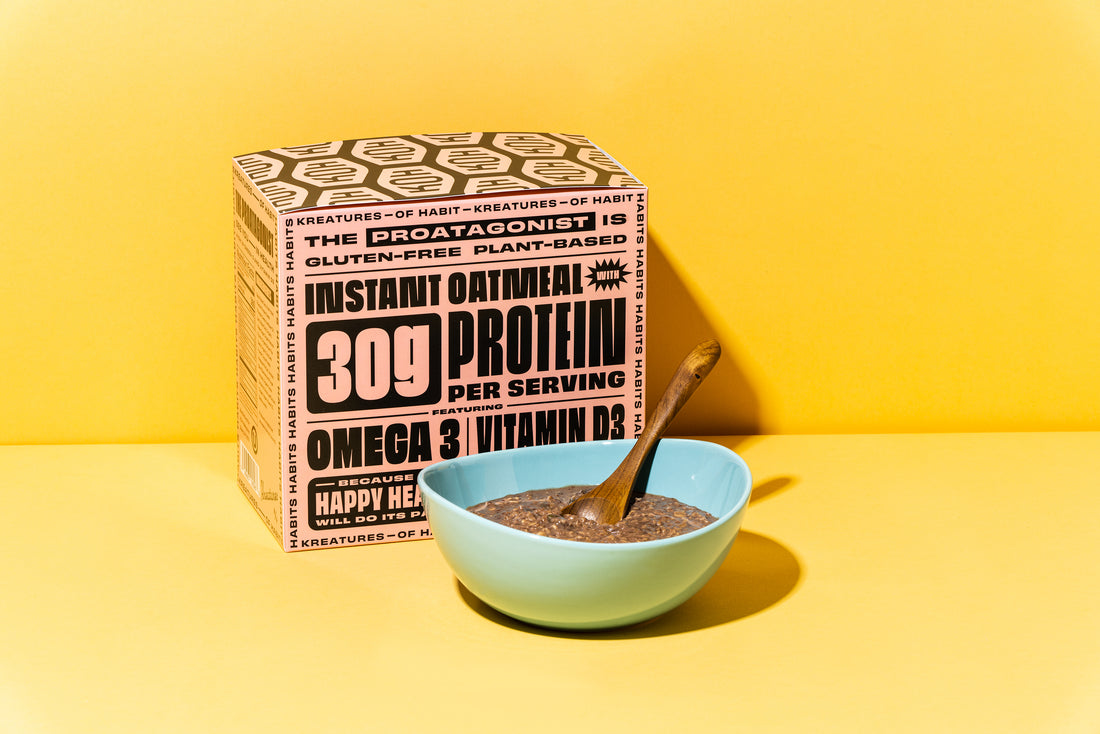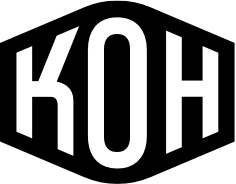
7 Awesome Benefits of a High Protein Diet
We’ve all been there—wooed and wowed by the latest and greatest, must-try health trend that never lives up to the hype. Now, you’re looking for something that really works, that isn’t a waste of time (or your money), and is actually good for your mind and body.
Enter: A high-protein lifestyle.
Whether you’re looking to build muscle, burn fat, or even just strengthen your bones, increasing your protein intake can make life and reaching your fitness goals a whole lot easier.
Let’s talk about the benefits of a high-protein diet and what that lifestyle looks like.
The Science of Protein: Why Is It So Important?
Protein is one of the three primary macronutrients (carbohydrates and fats being the other two). Amino acids are the building blocks that make up protein, and there are two types:
- Nonessential amino acids: There are 9 of these and your body can produce them.
- Essential amino acids: There are 12 of these and your body cannot produce them, which means we must consume them through our diet.
Just why is protein so important?
It helps repair damaged muscle tissue and even build new muscle. But the power of protein isn’t just limited to muscle growth. Protein gives you energy, supports your immune system, and you can even find protein in your hair, nails, and bones.
What Are the Benefits of a High-Protein Diet?
1. More Protein Helps You Feel Fuller
When you’re hungry, all bets are off when it comes to sticking with your diet. But if you can reduce cravings and find ways to feel more full, that can make losing weight a lot easier. Luckily, that’s where a high-protein diet comes in handy.
Eating more protein reduces hunger hormones (like ghrelin) and increases satiety hormones (like peptide YY) to keep you feeling full. In non-science speak, eating protein lowers feelings of hunger and increases feelings of fullness.
Research also shows that high-protein meals are more filling and satisfying than meals high in fat, so consider swapping out fatty foods for high-protein foods like chicken breast, tempeh, or a well-cooked salmon (which will give you the added benefit of some omega 3’s in your diet).
2. It Boosts Your Metabolism
Believe it or not, your body actually burns calories by digesting your food. That whole process is known as the “thermic effect of food” (TEF for short).
Not all foods burn the same amount of calories, however. Protein has a much higher thermic effect (20-30%) vs. carbs (5-10%) or fats (0-3%). That means a high-protein diet burns calories at a higher rate than a standard diet.
Eating more protein can also increase your metabolism. One study found that a high-protein diet can burn as much as 80 calories per day more per day than a typical diet. It might not seem like much, but that’s a little over 8 pounds a year you can lose just from eating more protein!
3. A High Protein Diet Helps You Build Muscle and Get Stronger
One of the benefits of a high-protein diet is that it aids in the muscle recovery process, which fuels greater muscle and strength gains. Your bro-split training program or push-pull-legs routine can only get you so far without an adequate protein intake. Working out—especially from a strength training or bodybuilding perspective—tears your muscles down and initiates a process called “protein synthesis.”
During protein synthesis, your body creates new proteins to repair the damaged muscle tissue from your workouts. You’ll need a sufficient amount of protein to get stronger and hit your muscle-building goals.
4. Eating More Protein Burns Fat While Preserving Muscle
If you want an athletic-looking physique—one where you’re lean but still have muscle and people can actually tell that you hit the gym—then your goal should be fat loss, not weight loss.
Truth is, unless you’re a gym newbie on a beginner’s workout plan, then you’ll probably find it pretty hard to build muscle and burn fat at the same time. The more muscle you have, the more calories you burn. So your goal should be to retain as much muscle as possible. That’s one of the benefits of a high-protein diet—it helps you preserve muscle while burning fat at the same time.
Check this out: In one 12-month study, 130 people were split into two groups. One group ate a high-protein diet and the other group ate a normal protein diet. Both groups followed a calorie-restricted diet (meaning they ate a little less than their normal calories). The high protein group ended up losing 53% more body fat than the group that ate a normal protein diet, even though both groups ate the same number of calories.
5. A High-Protein Diet Keeps You Fit as You Get Older
As you get older, your muscles begin to deteriorate through a process called sarcopenia. This age-related muscle loss can cause you to lose as much as 3-5% of your muscle per decade after age 30. Upping your protein intake is one way to offset the impact of sarcopenia, prevent muscle loss, and age gracefully.
6. Eating Protein Lowers Your Blood Pressure
Did you know high blood pressure is the primary cause of heart disease, strokes, kidney failure, and even memory or vision loss?
Good news is, one of the benefits of a high-protein diet is lower blood pressure. In fact, one particular study found that a higher protein diet can decrease the risk of developing high blood pressure by as much as 40%.
7. It Boosts Your Mood and Gives You More Brain Power
When it comes to the benefits of a high-protein diet, you might not think about your mood being impacted. Interestingly, protein helps your brain generate norepinephrine and dopamine, two chemicals that can boost your mood, as well as keep you energized and alert.
One study found that protein can also help you feel less stressed, less fatigued, and more satisfied with your diet, which gives you a greater chance of sticking with your diet long term.
Are High-Protein Diets Good for You?
You might have seen a lot of hoopla out there about how a high-protein diet can be bad for you. Two of the bigger myths out there are that protein can cause kidney damage or is harmful to your bones.
Let’s put these myths about a high-protein diet to bed.
Myth #1: A High Protein Diet Causes Kidney DamageResearch shows that a high-protein diet doesn’t cause kidney damage. If you have pre-existing kidney issues, a hig- protein diet could aggravate it. But actually cause kidney problems? Not at all.
In fact, a collection of studies published in the Journal of Nutrition found that a high-protein diet actually increases kidney function, not decreases it.
Myth #2: A High Protein Diet Is Bad for Your BonesAnother common myth is that too much protein is bad for your bones, and can even cause osteoporosis. The theory behind this myth is that protein causes acid to build up in your body and the calcium stores for your bones become depleted to counteract the acid buildup.
However, there’s a ton of research out there to refute this and show that a high-protein diet is not only good for your bone health but can also help prevent osteoporosis and fractures too.
Summing Things Up
A high-protein diet isn’t just another fad diet promising quick results that won’t last. Upping your protein intake is a sustainable way to lose weight and build muscle. It boosts your metabolism, keeps you feeling full, and can even lower your blood pressure.
If you’re struggling to get more protein in your diet, here are three simple techniques you can use:
- Find healthier, high-protein substitutes for foods you already eat. Here are a few examples:
- Low-fat Greek yogurt instead of sour cream
- PROATagonist high protein oatmeal for regular oatmeal
- Egg whites for eggs
- Turkey sausage for pork
- Chicken meatballs for fatty beef
- Jerky (especially turkey jerky) for chips
- Lentil noodles for regular noodles
- Start incorporating protein shakes in your diet: Whey protein, casein, soy protein, and pea protein are all good options.
- Simply increase the amount of protein you eat with each meal. For example, if you normally eat 4 ounces of steak at dinner, try 6.
All pretty simple, right? Be sure to come back here and let us know which technique works best for you!
Author: Chad Richardson
Chad is a freelance writer from Cincinnati, OH. When he’s not behind his computer cooking up content, you’ll find Chad at the gym making extremely ugly workout faces or watching sports with friends. He likes to pretend his hometown teams will play better if he yells at the TV.
Learn more about Chad on his business website here.
The information contained in this post is intended for informational purposes only and is not intended to serve as medical or professional advice. You should consult your doctor or medical professional before starting this or other fitness or nutrition programs to determine if it is right fo your unique needs.
Sources:
https://pubmed.ncbi.nlm.nih.gov/16002798/
https://pubmed.ncbi.nlm.nih.gov/25266206/
https://www.ncbi.nlm.nih.gov/pmc/articles/PMC524030/
https://pubmed.ncbi.nlm.nih.gov/33247306/
https://pubmed.ncbi.nlm.nih.gov/22691622/
https://www.health.harvard.edu/staying-healthy/preserve-your-muscle-mass
https://pubmed.ncbi.nlm.nih.gov/25194158/
https://pubmed.ncbi.nlm.nih.gov/25028958/
https://www.ncbi.nlm.nih.gov/pmc/articles/PMC2129142/
https://academic.oup.com/jn/article/148/11/1760/5153345
https://pubmed.ncbi.nlm.nih.gov/16373952/
https://asbmr.onlinelibrary.wiley.com/doi/full/10.1359/jbmr.2000.15.12.2504
